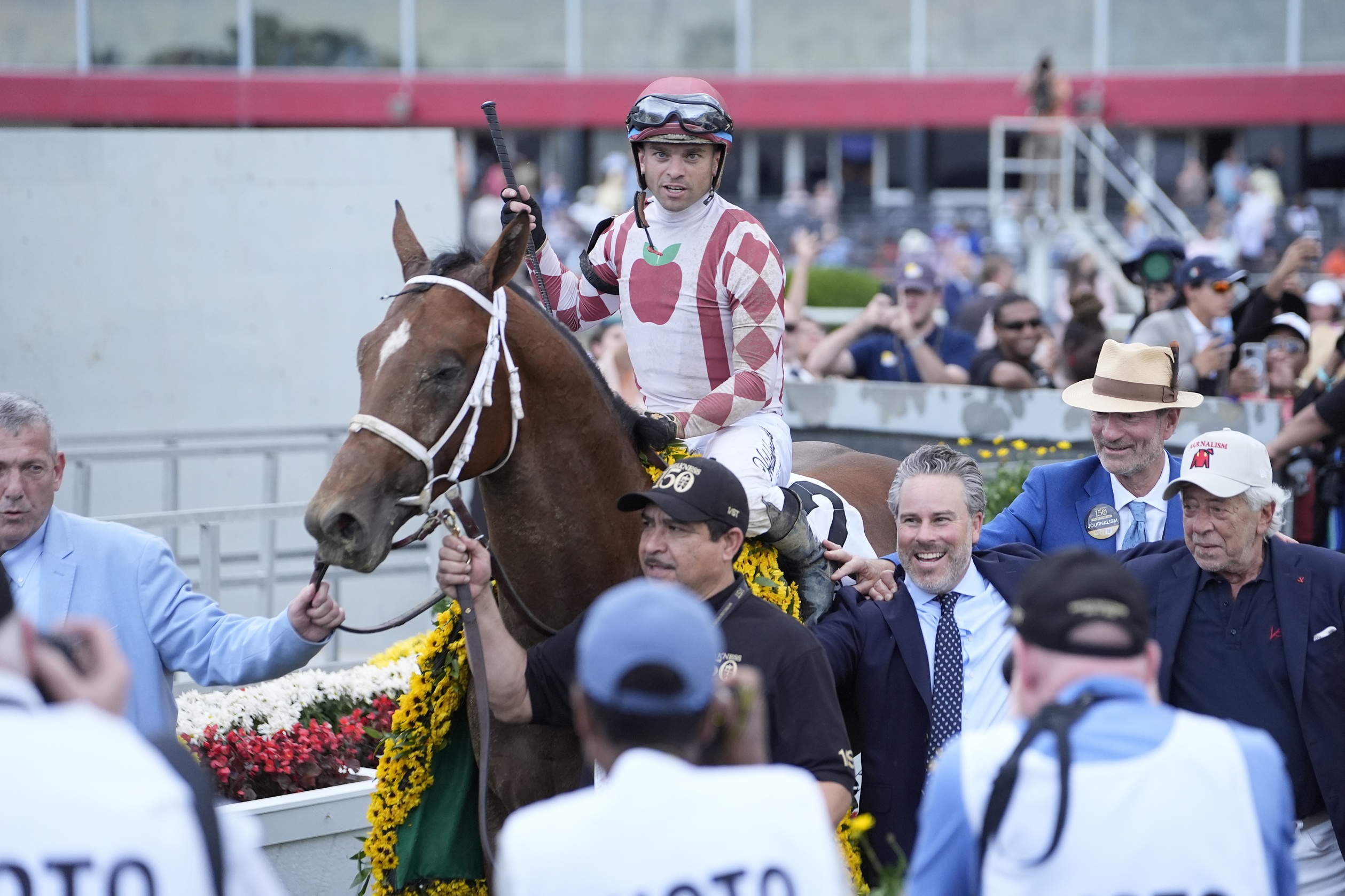Editorial: Will we Ever See Another Triple Crown in Horse Racing?

Sovereignty, the winner of this year's Kentucky Derby, disappointed fans when his team announced that he would skip the Preakness Stakes due to concerns about his stamina for the demanding schedule of the Triple Crown. This decision reflects a broader trend: the Triple Crown—comprising the Kentucky Derby, Preakness Stakes, and Belmont Stakes—is becoming increasingly difficult to achieve. Since Sir Barton's sweep in 1919, only 13 horses have won all three races, with Justify being the most recent winner in 2018. There have been significant gaps—25 years from 1950 to 1973 and 37 years from 1978 to 2015—in which no horse managed to win the Triple Crown. The rarity of Triple Crown winners can be primarily attributed to modern breeding practices, a grueling race schedule, heightened competition, and changing priorities within the industry.
Get sports picks for every league and nearly every matchup on Doc’s free picks page.
Breeding and Training Challenges
Today's Thoroughbreds are bred primarily for speed rather than endurance, focusing on races such as the 1 1/4-mile Kentucky Derby or the 1 3/16-mile Preakness, in contrast to the Belmont Stakes, which tests horses over a distance of 1 1/2 miles. Breeders prioritize early-maturing sprinters for quicker financial returns, a shift from the 1970s when horses like Secretariat demonstrated a balance of speed and stamina.
The decision of Sovereignty to skip the Preakness highlights this trend, as his pedigree is better suited for shorter distances. Additionally, contemporary training practices exacerbate the issue. Top horses now compete less frequently, averaging fewer races per year than in previous decades. Lighter racing schedules, such as Sovereignty's preparation for the Derby, often leave horses unprepared for the intense demands of the Triple Crown series. Modern trainers tend to focus on preserving their horses rather than building endurance, which diminishes the resilience needed to handle the relentless pace of the Triple Crown compared to the more rigorous training regimens seen in earlier eras.
Competition and Schedule Pressures
The Triple Crown's five-week schedule, which includes the Derby, Preakness, and Belmont, requires horses to be versatile and recover quickly. The Derby features a 20-horse field that tests both speed and positioning, while the Preakness demands a fast turnaround. The Belmont focuses on stamina.
In recent years, trainers have increasingly opted to skip one of the legs of the Triple Crown in favor of less demanding races. For instance, Mystik Dan did not compete in the 2024 Belmont, and Sovereignty chose to skip the Preakness this year. The competition has also intensified, with larger and more talented fields.
Historically, early 20th-century races had smaller fields, but now the Derby often fills up to its maximum of 20 horses, raising the odds for upsets. Recent seasons have shown that no single horse has been able to dominate all three races. Instead, "spoiler" horses—those that are fresh for the Belmont—can challenge fatigued frontrunners, making it increasingly difficult for any horse to win the entire Triple Crown.
Economic and Cultural Shifts
Economic incentives are steering owners away from pursuing the Triple Crown. While the purse for the Kentucky Derby is significant, it is overshadowed by other high-stakes races that offer even greater rewards. As a result, owners often prioritize long-term profits and may skip the Preakness or Belmont in favor of races that better suit their speed-bred horses, as was the case with Sovereignty's team, who opted for a later campaign.
Additionally, the cultural relevance of horse racing has declined, resulting in a decrease in public interest over recent decades. Fans tend to favor individual races rather than the overarching narrative of the Triple Crown, which has eased the pressure on owners to pursue the crown. Consequently, owners and trainers often prioritize high-profile wins over historical achievements, viewing the Triple Crown series as a risky marathon in a sport that typically rewards quicker returns.
Conclusion
The Triple Crown stands as a testament to equine greatness. Yet, its rarity highlights the challenges faced by a sport increasingly shaped by speed-focused breeding, intense competition, and economic factors. Sovereignty's decision to skip the Preakness this year due to concerns about stamina and strategic planning has disappointed fans and reflects these ongoing challenges. With no standout horse emerging from the early prep races, a sweep of the Triple Crown seems unlikely. Unless breeding and training shift their focus to prioritize stamina and the incentives are aligned with the legacy of the Triple Crown, true champions will continue to be rare, reminiscent of a past era in a faster, more fragmented racing landscape.
Get expert sports picks on every game, or if you want our very best bet premium picks by the experts, sign up for your free $60 account with a guarantee.
Most Recent Belmont Stakes Handicapping
- 2025 Belmont Stakes Predictions and Recommended $100 Wager
- 2025 Belmont Stakes Wagering Strategies
- Best Belmont Stakes Exacta Bets for 2025
- Best Belmont Stakes Trifecta Bets for 2025
- 2025 Belmont Stakes Betting Trends
- 2025 Belmont Stakes Long Shots: Expert Advice and Betting Tips for Finding Value
- 2025 Belmont Stakes Pace Scenario and Handicapping
- Belmont Stakes Odds - Live Horse Racing Betting Odds Updated
- 2025 Belmont Stakes Field - The Belmont Stakes Lineup is set
- Editorial: Will we Ever See Another Triple Crown in Horse Racing?
